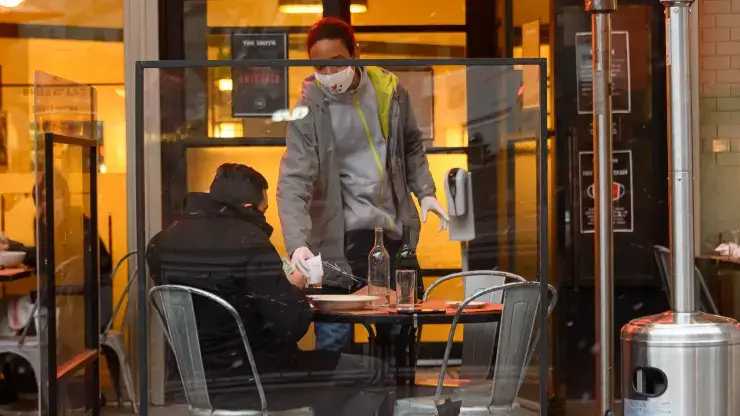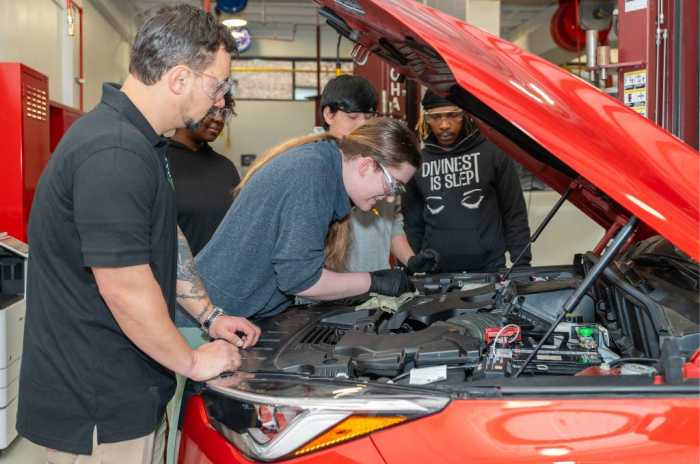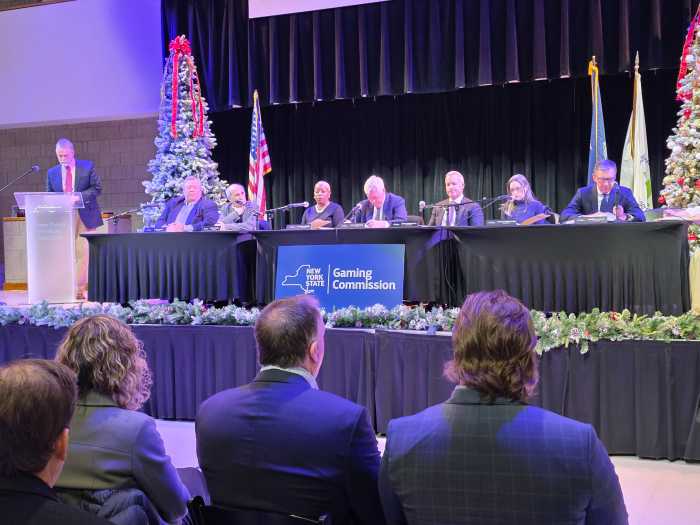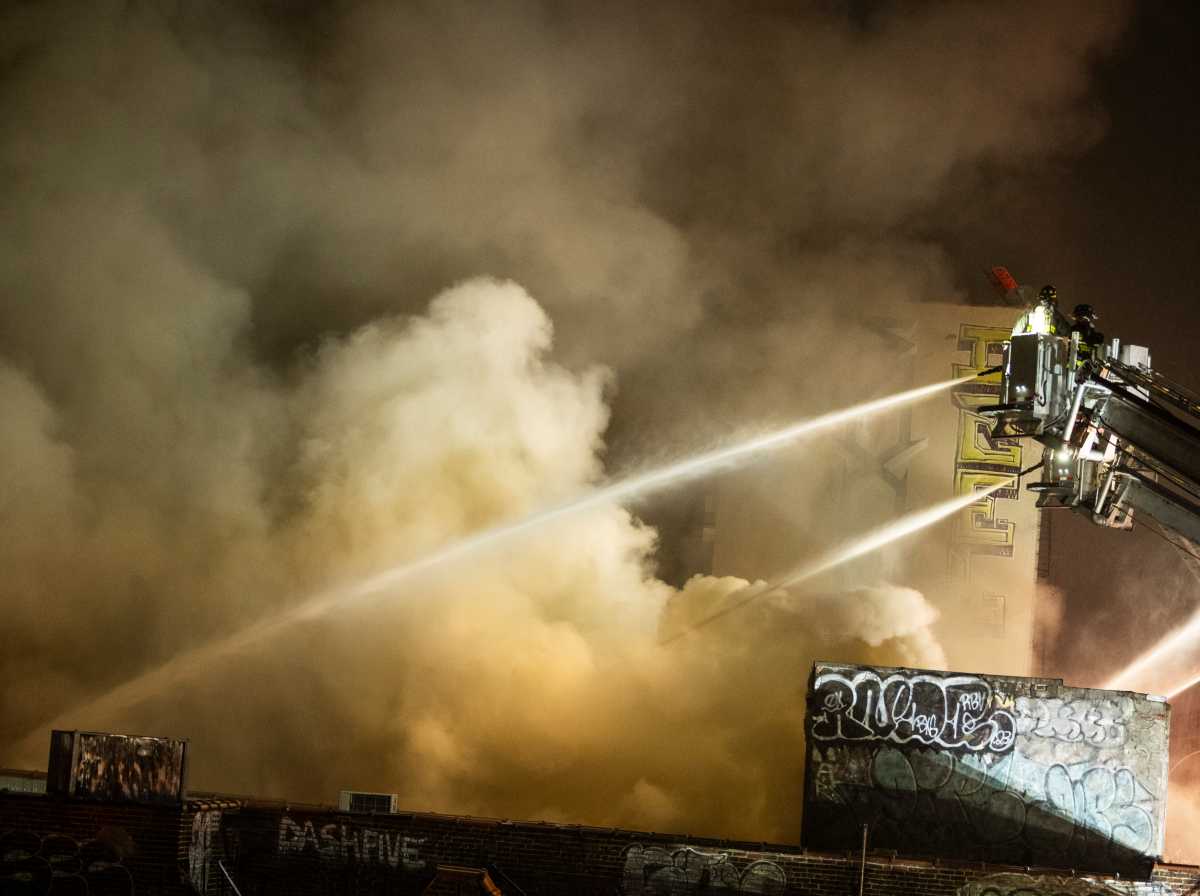Much of the convalescing restaurant industry’s disconcert can be traced to the Great Resignation — a mass exodus of more than 33,000 workers from their job during the pandemic amid low pay and burnout — and the fix for many lies in a nationwide effort by industry workers to eliminate the subminimum wage for tipped workers.
Alisha Brody’s resignation reckoning came on Nov. 11, 2021, when she walked out of a shift at a Grand Concourse food chain after working three overtime shifts and seeing very little in terms of money and gratitude. For her, the experience of Black tipped-workers is one of constant insecurity both in competition with their white peers and the mistreatment from management and patrons they rely on for a living wage.
Black workers, despite accounting for a majority of the tipped service industry, are on the low end of the wage scale. A survey by One Fair Wage found that prior to the pandemic, Black tipped workers’ income, including tips, was already substantially lower than their white counterparts’ earnings, with 60% of them reporting earning less than $15 per hour, compared to 43% of white workers.
“It feels subhuman to be a service employee sometimes because the demands and the hours don’t ever match up or the poor treatment and low wages, ” said Brody. “For me, my last stop was working at this place during the pandemic, being away from my baby, and still be broke and mistreated.”
On Monday, the U.S. Deputy Secretary of Labor Julie Su toured various NYC restaurants spotlighting the need for full $15 per hour minimum wage with tips for restaurant workers as the restaurant industry grapples with a severe staffing shortage.
In 43 states and on the federal level, tipped workers are paid as little as $2.13 per hour in direct wages, with tips making up the balance of the federal minimum wage, which remains stagnant at $7.25 per hour. The federal Raise the Wage Act, would boost the federal minimum wage for tipped workers to $4.95 this year and then by $2 per year until it is equal to a $15 federal minimum wage.
At three NYC restaurants, Baodega in Manhattan, Skal Restaurant in Brooklyn and Wasabi Point in Queens, Su, the deputy labor secretary, performed the duty of restaurant server for an hour spotlighting the struggles of restaurant workers earning a subminimum wage for tipped workers and too often being forced to tolerate inappropriate behavior from customers, managers and co-workers in order to earn tips.
The tour was designed to draw attention to the success of “High Road Kitchens” — restaurants that participated in a pandemic-created program in which governors and mayors across the country, including in New York City, partnered with One Fair Wage to provide grants to restaurants that committed to paying a full minimum wage, plus tips — especially during the staffing crisis.
One Fair Wage – a national coalition organized around the movement to increase wages for service workers – announced in February that it is embarking on a $25 million campaign to remove the subminimum tipped wage in 25 states by 2026, marking the 250th anniversary of U.S. independence.
Inequality.org, a data-driven wealth equality portal, traces the roots of subminimum tipped wages to post-Civil War America where restaurants and railway companies relied on the practice since they didn’t have to pay wages to recently freed slaves.
“Ending the subminimum wage would also abolish a shameful relic of slavery. Tipping became prevalent in the United States after the Civil War, when restaurants and railway companies embraced the practice because it meant they didn’t have to pay wages to recently freed slaves. The racial biases that created the practice of tipping are still prevalent in the industry today,” according to the website.
Since the pandemic, 88% of Black tipped workers, compared to just 68% of all workers surveyed, have seen their tips plunge by half or more. For Black service industry workers, the end of the subminimum wage could be an advance for curbing systemic racism in the workplace
“If we are committed to ending systemic racism in the workplace, passing a living wage bill for tipped and non-tipped low-wage workers is essential to reducing inequality,” said Tanya Wallace-Gobern, executive director of the National Black Worker Center Project, in a February briefing.
According to the National Restaurant Association’s State of the Industry Mid-Year Update, three out of every four restaurant owners now report employee hiring and retention as their greatest difficulty, and many have loudly blamed unemployment benefits as the reason workers aren’t returning to restaurants.
However, according to a report released by Joblist in July, 38% of former restaurant workers surveyed stated that they would no longer be seeking work in the hospitality industry that fired them — citing poor management, low pay and harmful workplace experiences.
Earlier this month, One Fair Wage also announced the launch of a new legal aid hotline for NY restaurant workers facing worker rights violations, hostility from customers, wage theft, sexual harassment and other safety concerns. The hotline number is (646) 470-9113.
























